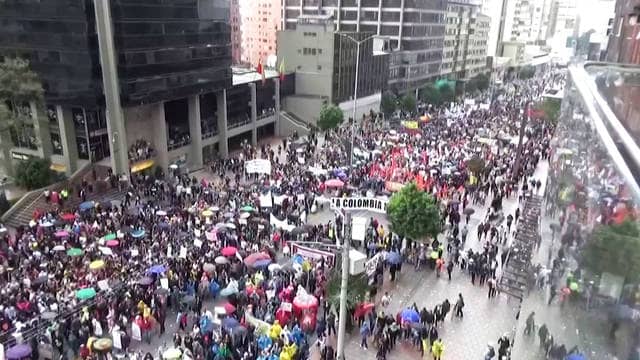Democracy Now!
In Colombia, hundreds of thousands of people took to the streets Thursday in the largest national strike the country has seen in years. Labor unions, students, teachers, indigenous and Afro-Colombian activists joined in peaceful marches across urban and rural Colombia as anger mounts against right-wing President Iván Duque and his Cabinet. The protests were triggered by Duque’s proposed labor reforms and cuts to the pension system, as well as a recent military airstrike against a camp of alleged dissident rebel drug traffickers which killed eight children. Police responded to the movements with repressive tactics and tear gas in the cities of Bogotá, Cali and Medellín. Colombia’s borders with Venezuela, Ecuador, Brazil and Peru were shut down in response to the national strike. Indignation against Duque’s government has brewed since the U.S.-backed president took office in August 2018, and social activists have continuously denounced Duque’s sabotage of Colombia’s historic peace accords, which were signed in 2016 after half a century of war. We speak with longtime activist Manuel Rozental, who joins us from Cali, Colombia. He has been involved with grassroots political organizing with youth, indigenous communities, and urban and rural social movements for four decades.

